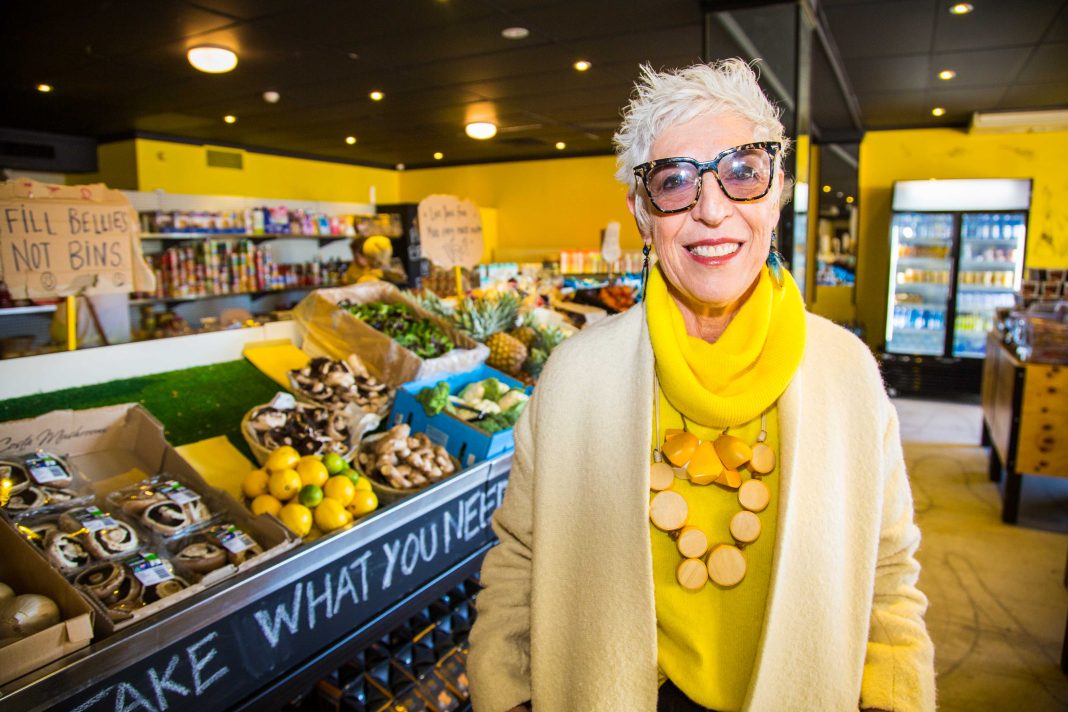While people go hungry, there’s no justification for food waste – itself a massive contributor to destructive climate change emissions. What began as a one-woman mission to redistribute unwanted food has become a global phenomenon. We speak to Ronni Kahn AO, CEO of OzHarvest, about how sometimes we can all get involved in the simplest solutions to end the biggest problems.
According to environmental thinktank Earth.org, we waste enough food worldwide to feed three billion people each year. At the same time, Action Against Hunger estimates that 10% of the world’s 8 billion people go undernourished.
How is it that bellies go hungry when we waste much more food than is needed to feed them?
In an unsettling show of this problem, The World Counts provides a clock that tots up the amount of food wasted as the milliseconds tick by!
If Anyone Can, Ronni Kahn
Whereas many of us will be numb from shock at these figures, this is old news to Ronni Kahn AO.
Our CityChanger founded and runs OzHarvest, an Australian non-profit intent on tackling hunger by redistributing surplus food before it becomes waste.
The idea came to Ronni while still at the helm of an events company. Pained at the sight of so much discarded grub after each occasion, she started delivering the leftovers to Sydney’s homeless shelters.
By 2004, she had set up OzHarvest, eventually formalising the process, and bringing others on board to help with the deliveries.
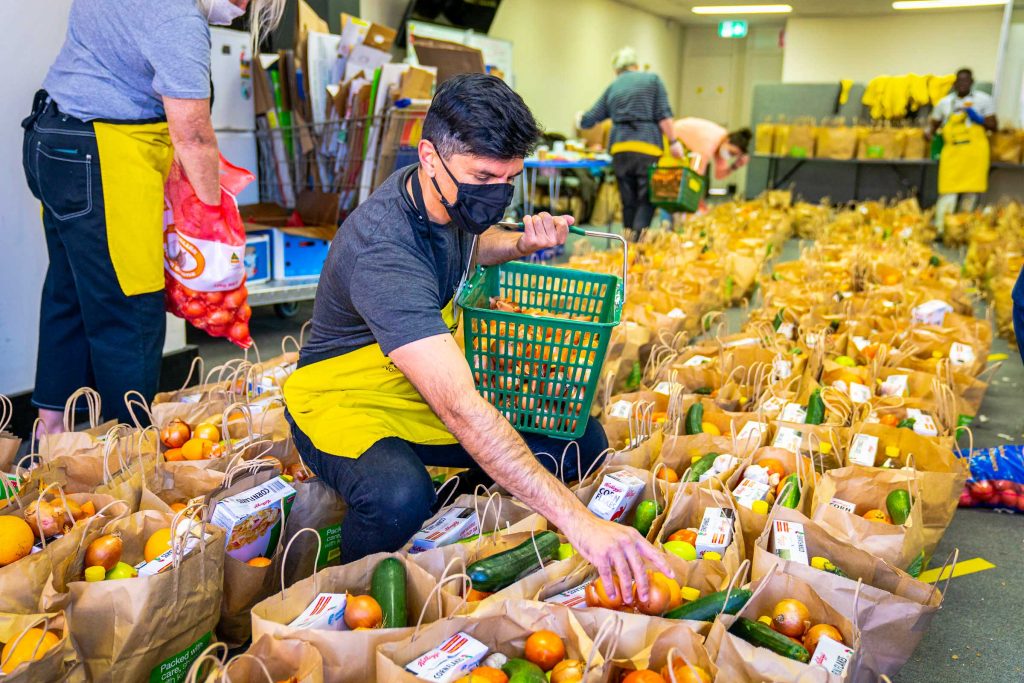
The Challenges with Surplus Food Redistribution
Ronni’s idea is a roaring success. But as logical as it seems that leftovers go to those who need them, it took time and hard work to get there.
Much of what OzHarvest now (re)distributes is unsold goods from supermarkets close to their sell-by date. In the early days, they were reluctant to hand it over.
Australian legislation – like in so many countries – made the stores liable for any negative repercussions of food given away. Were someone to fall ill and speculation land the responsibility at the feet of the supermarket, it could leave them vulnerable to prosecution.
And if perishables were not properly stored in transit, the chance of tucking into gone-off goods was potentially high.
The distinctive yellow OzHarvest vans are refrigerated, but at the time, more reassurance was needed.
Together with a group of lawyers working pro-bono, Ronni lobbied various state governments to get legislation changed. In 2005, New South Wales passed the Civil Liabilities Amendment Act, followed by other Australian states passing similar legislation. It started a movement of easy, safe, socially conscious food redistribution.
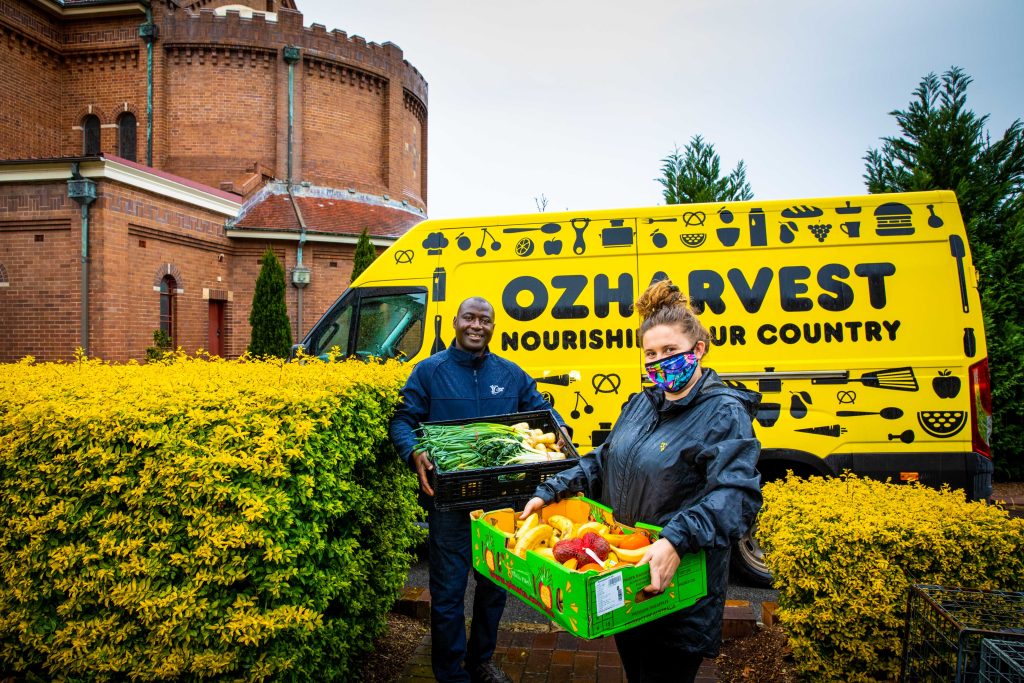
The Need for Food Rescue
We asked Ronni what it was that made her leave behind a successful business to work tireless on such a stubborn problem.
The honest answer is that she cares deeply about the cause.
It’s unconscionable that good, fabulous food, shouldn’t feed hungry people.
Aside from unnecessary hunger, research has found that 40-60% of all food that households purchase is wasted, Ronni tells us. Furthermore, their website informs us that this is “costing the average household between $2,000-$2,500 Australian dollars every year”. Ouch!
More than that, though, “[u]p to 10% of global greenhouse gases comes from food that is produced, but not eaten.” So, it’s a climate problem, too!
“When I started OzHarvest, I had no idea that I was also starting an environmental organisation,” Ronni says. “My initial motivation was purely social.”
As is so often the case, the two are closely linked.
Reviving a Food Morality
Our CityChanger soon realised that there was an appalling lack of awareness around how much food was being dumped in landfill: approximately one third, according to Australia’s Climate Council.
Food produces methane as it rots away. This is a potent global warming gas; if some sources are to be believed, it heats the atmosphere up to 80 times that of CO2! (A more conservative estimate puts it at 28 times – still a shocking figure!)
Ronni recalls how her grandparents, who had lived through the Great Depression, never wasted food. “When the milk went off, they turned it into yoghurt or ricotta.” They got creative or starved.
Over time, our shopping and eating habits have changed.
“We like that idea of walking into a supermarket at 10 o’clock at night and having the exact same choice as at eight o’clock in the morning.” And we expect the fruit and veg we buy to fit a beauty standard. Much of the so-called “ugly” goods are wasted before they even reach the shelves.
That, and we misunderstand what best before and use by dates printed on packaging really mean. This is what Ronni would like to see governments tackling next.
On a personal level, though, Ronni realised that “really reigniting the morality” behind our relationship with food was part of her task.
Our role is reconnecting the value of food to the notion of what it takes to prepare it and how not to waste it.
A Shift in Food Culture
OzHarvest is a major player in the Australian government’s promise for “diverting more food to the food rescue sector”.
People are engaging with the concept. What started out as a B2B (business to business) concept has grown into a full-scale social movement. An army of 300 staff and more than 3,000 volunteers now help to deliver regular food donations from some of the country’s biggest supermarkets to vulnerable people.
But true change in food culture, our CityChanger believes, lies not with organisations but individuals.
Educating the Eater
Whilst best known for their yellow vans and food rescue mission, OzHarvest additionally runs three education programmes designed to create positive change. NEST teaches communities about nutrition and cooking on a budget. FEAST is a curriculum-aligned program for primary and high schools, and Nourish offers hospitality training for vulnerable young people.
The idea goes that, if we start life with better habits, it’s easier to maintain them.
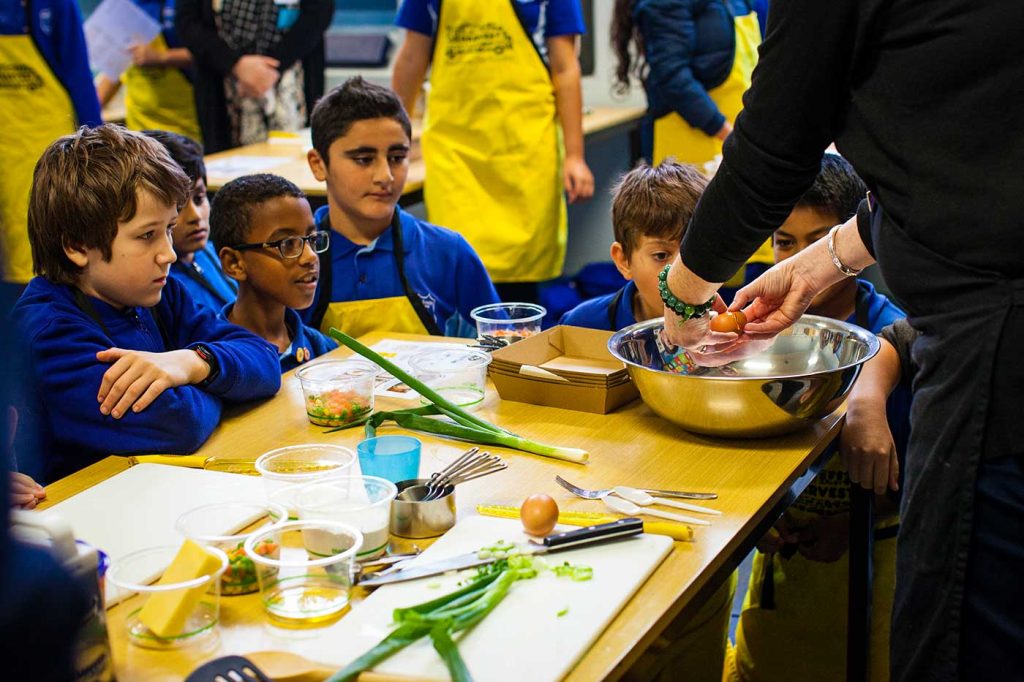
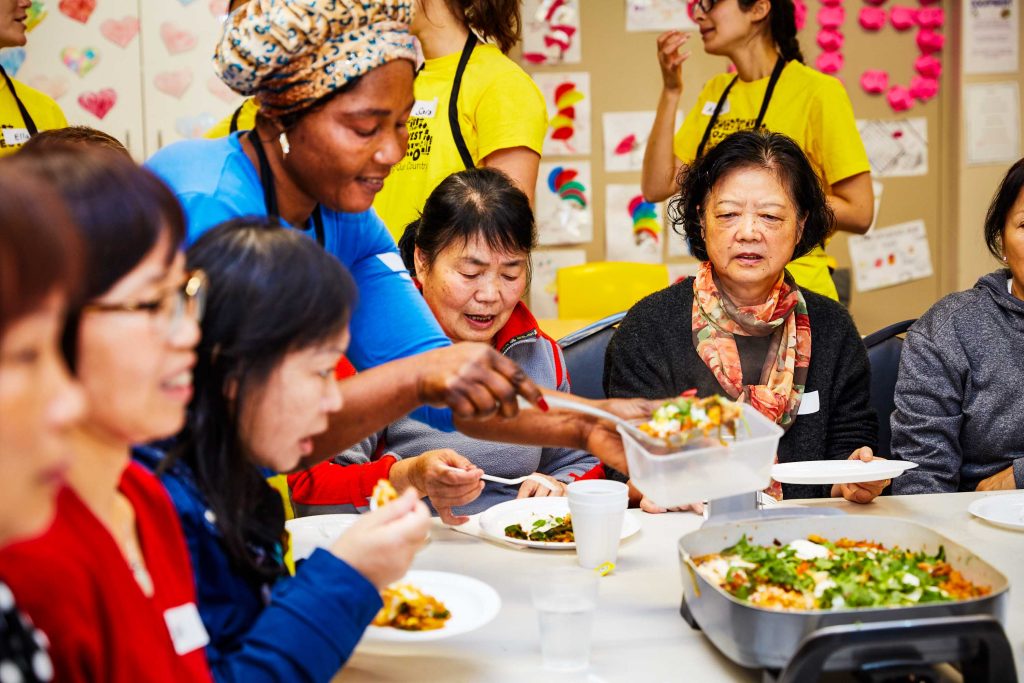
We realised that, if kids come home with messages to their families, that creates change.
Hang on! Doesn’t this put the responsibility for reducing food waste on us all, rather than governments and businesses? Well, yes. That’s Ronni’s point.
Our CityChanger reports that Australian supermarkets are only responsible for around 2% of food waste. Households are the real guilty parties, but the beauty of that is that it spreads out the challenge in manageable proportions – and it reaches every sector of society.
“Politicians are people. Businesses are run by people,” Ronni notes. Schoolchildren are people, as are farmers, supermarket managers, lorry drivers – everyone! So, Ronni’s words apply to us all:
“If you start by not wasting food, you are a climate activist. Because what you are doing makes a difference.”
And that gets people to act. This is highly empowering.
Use It Up
What’s more, not wasting food is easy!
OzHarvest teamed up with BehaviourWorks at Monash University to conduct research into the most impactful ways to prevent household food waste. Off the back of these insights, OzHarvest launched their Use It Up campaign and created a special aid: Use It Up™ tape.
Safe and usable in low temperatures, the tape can be stuck on individual food items, containers, or shelf in the fridge as a visual reminder of what needs to be eaten. Once you can see it, you’re more likely to use it and not chuck it away!
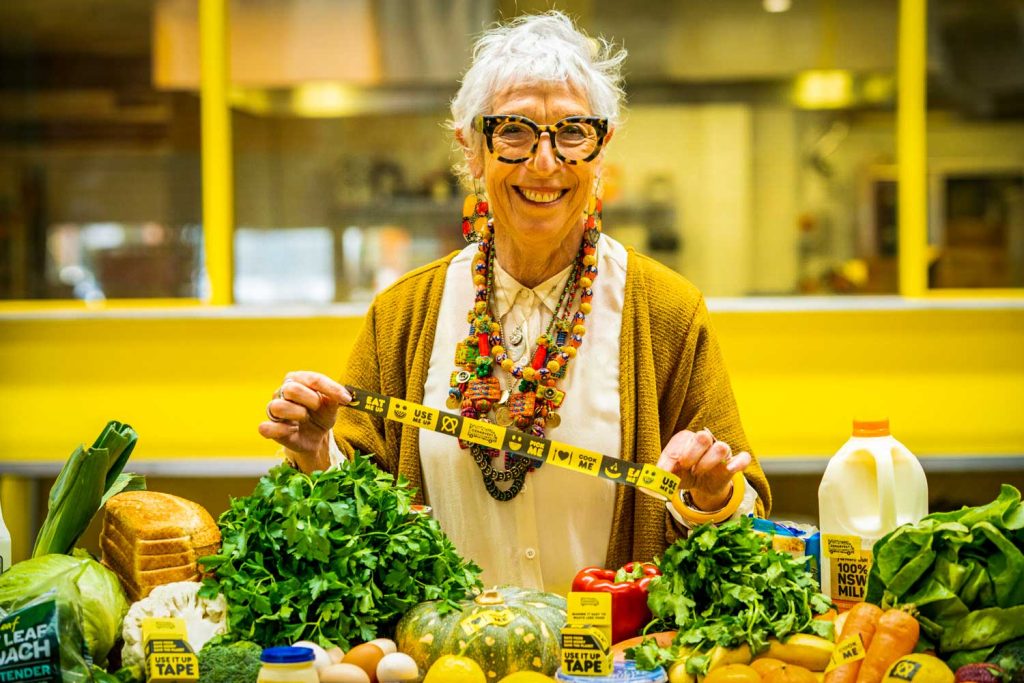
By making this resource freely available to order, 40,000 people so far have made use of it. Research has shown that it has made a significant difference, Ronni tells us: “Households using the tape have reduced their food waste decreased their by 40%, and especially fresh produce like fruit and veg, meat, and dairy by 50%.” That’s huge!
In June 2023, Ronni will attend the Urban Future conference in Stuttgart, Germany. “I’m particularly excited about bringing this [tape] to Europe, because we want it in the hands of everybody.”
For now, it’s only available in Australia, but they helpfully guide us through making our own. There is also a load of other downloadable resources we can all make use of.
A Waste-Free New World
Clearly, progress is being made, but the pressure is on.
“We’ve got less than 3,000 days to halve food waste by 2030 in line with the UN SDG goal,” Ronni tells us. But, as she is proving, this is an achievable aim – and at a city level, too.
Today, the OzHarvest model has been replicated in urban centres in New Zealand, South Africa, Japan, Vietnam, and the UK. This means that, across at least four continents, there are people benefiting from redistributed food, and suppliers are joining the wave to cut their waste.
We asked Ronni what her secret is to persuading businesses to participate – after all, this is a big change for them and there’s no financial incentive.
First, she says, they have a fear of missing out, so it’s like shooting at an open goal.
And, in reality, there is a financial incentive. Consumers vote with their feet – or more accurately, with their cash. They expect businesses to operate with a social and environmental conscience. Saving food waste gives them a tangible way to prove it.
Personally, when she wants to convince a new supermarket to join the movement, Ronni builds a rapport. “People do business with people they like.”
This comes easy to her. Maybe that’s because, even after 19 years, our CityChanger still seems as committed and enthusiastic as she was on day one.
Passion is infectious. And I’m completely passionate.
“I had no marketing experience,” Ronni points out. “I haven’t gotten an MBA. All I know is how to be real and share something very important. And people want to be part of that.”
Food for Thought
On the theme of Ronni’s capability (and reputation) for persuasive speaking, we asked whether she had any final words of advice for you, our readers, how to be better CityChangers.
“It’s about resilience. It’s about not giving up, and it’s about keeping on finding different ways to tackle some of these core problems.”
She reminds us that, two decades ago, no one recycled – they weren’t even talking about it. Now we do separate our rubbish almost instinctively. Behaviours change. Stopping food waste can go the same way, but we need to make a start – each of us.
Remember: “It’s not countries; it’s us. So, my biggest message is use it up!”

